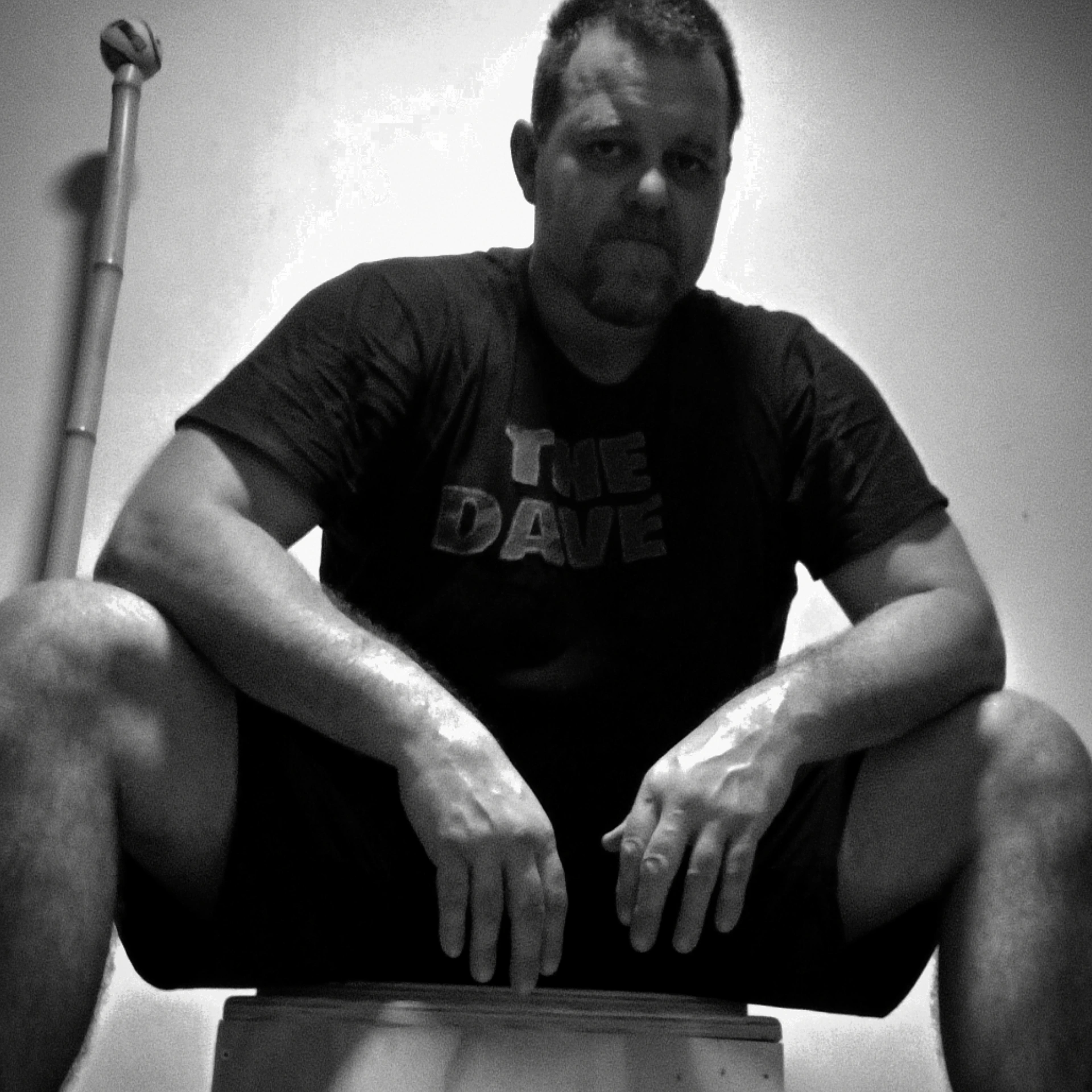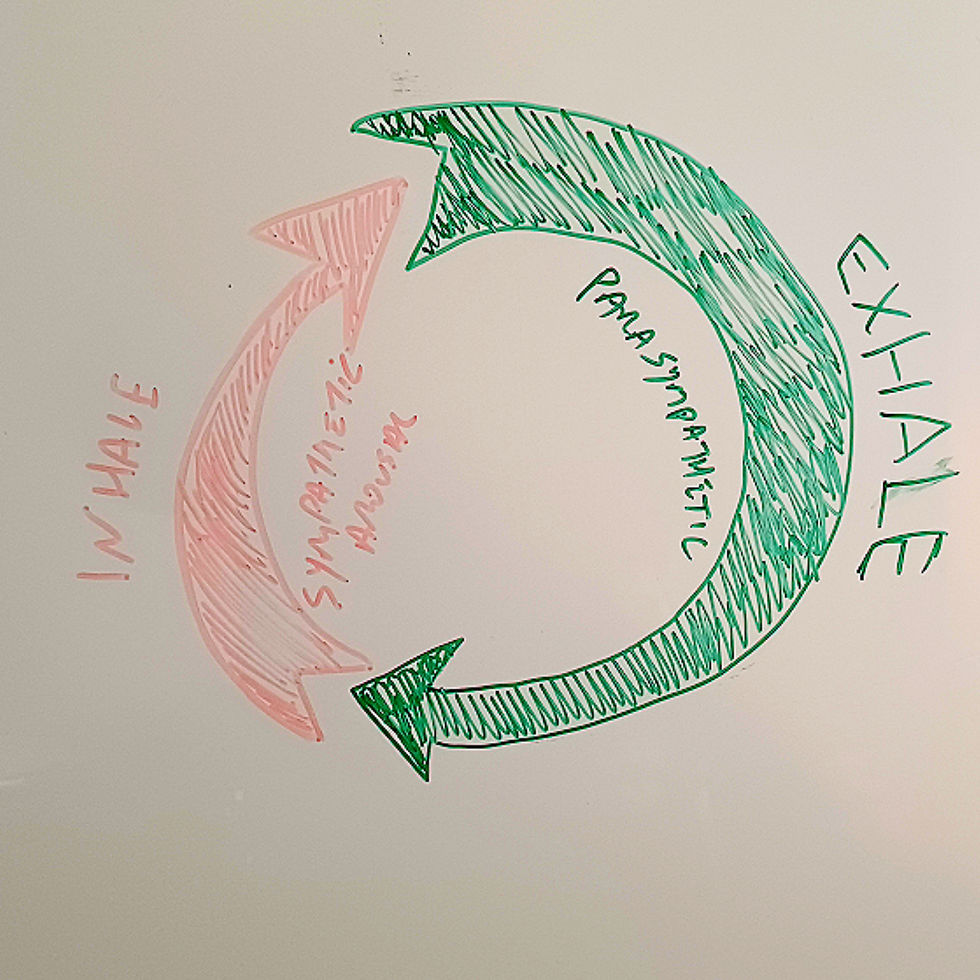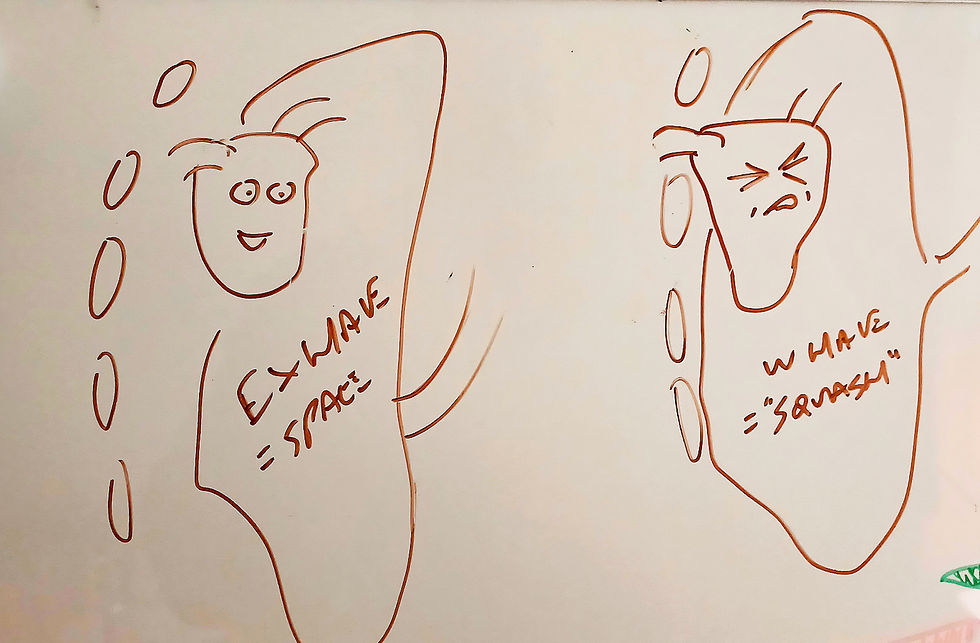Breath and Your Heart
- Dave Hedges

- May 1, 2022
- 3 min read
Breathing is both affected by and affects the central nervous system.
This means you have the power to observe and adjust how you are feeling simply through observing how you are breathing.
Physicists tell us an observed system is disturbed by the act of observation and call this the "Observer Effect"
And the Sociologists tell us that people behave differently because they know they are being watched, the so called "The Hawthorne effect"
So by you merely observing your breathing, I would place a pretty sure bet, you're going to adjust it slightly!
How you adjust it matters.
A healthy person ought to breath in a pattern where the inhale is shorter than the exhale, there is a slight pause before the next inhale and that in 60 seconds they're getting 5-7 breath cycles. It has been suggested that the "perfect" rate of breathing is 5.5 breaths per minute.
Breath rate aside, as that changes according to activity, the fact that the exhale is longer than the inhale should rarely change. How much longer is completely dependant in activity, but it will nearly always be longer.
Why?
The two images in this post are sketches drawn on my whiteboard in the clinic for a client, so forgive me for not having "professional looking" graphics.
This first image represents the basic breath cycle:

The red is the inhale, notice it is shorter than the green exhale. The red line correlates to the Sympathetic side of the nervous system, the Green, the Parasympathetic side.
Sympathetic: Fight/Flight, Action/Reaction, heightened arousal
Parasympathetic: Rest/Digest, Healing, Recovery, lower arousal
Both sides are necessary, and we can emphasise one or the other through changing our breath.
Deliberately inhaling with more emphasis than our exhale can wake us up, it can ramp us up. You'll notice when someone gets scared, anxious or angry, their breathing speeds up, their inhale is more noticeable than their exhale. If you replicate this breathing pattern now, you will probably notice yourself getting a little angsty, ready to pounce. Try it.
Now, reverse things. Think of someone who's laid back, chilled out. Maybe someone (healthy) who's fallen asleep. Do you notice the depth with which they breath, the longer exhales, the smoother rhythm. Try this yourself, count how long your in breath is, now count the outbreath and make it longer than the in. Do you feel tension dissipating, the body relaxing, maybe the mind slowing?
There are several reasons for this, but one in particular I learned quite recently and drew as this image:

This is your heart and a lung inside the ribcage. On the left the heart has room as the lung is deflating with an exhale. This means the heart has room to fill up with it's full load of blood and pump it out to it's, well, to it's hearts content! The neurons in the heart send out signals to down regulate the arousal level, reduce sympathetic tone and allow the parasympathetic do it's job. On the right, the space is getting a little tight as the lung is inflating, meaning less room for the heart. There's a slightly less room, less blood volume and the neurons send out a signal to upregulate the arousal level, the ramp up the sympathetic nervous system.
Now, my sketch is more comic book than accurate. But never the less, this is a genuine response. So now we can see how inhale dominant breathing is going to send out more stress signals and the exhale dominant breathing will send out more relax signals.
How we utilise this is up to the individual.
If we feel stress, we can deliberately slow our breathing to mitigate it. If we're feeling tight and anxious, we can observe our breath and make appropriate changes. If we're exercising, this is one mechanism we can use to prevent us losing focus due to hyper arousal, we can slow fatigue and moderate ourselves somewhat.
If we're working our rehab and injury management drills, then we can ensure we're in the rest/digest world where the body is much more likely to respond in the manner we want it to.
So I ask you, how are you breathing right now?
Which is longer, the inhale or the exhale?
Regards
Dave Hedges www.DaveHedges.net



Comments